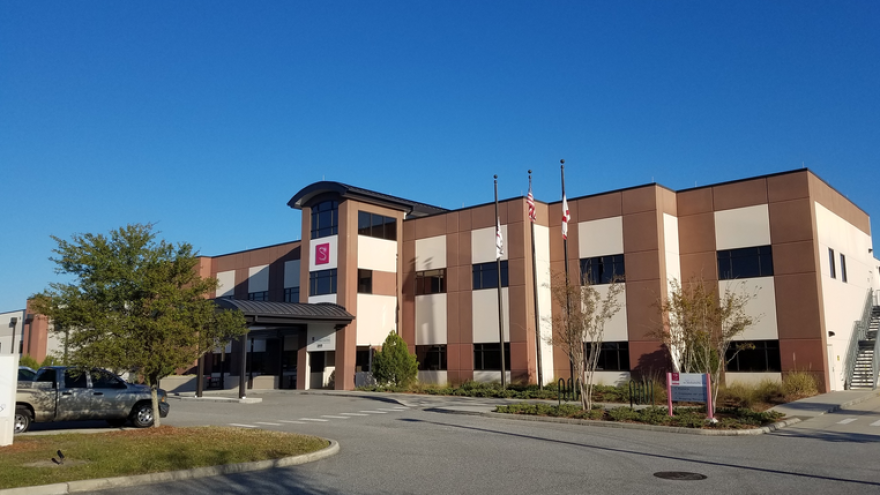The city of Jacksonville wants Saft America Inc. to repay more than $320,000 tied to a 2009 economic development agreement.
The lithium-ion battery maker failed to create 279 jobs by the end of 2017, violating terms of its Oct. 22, 2009, economic development agreement with the city, according to Office of Economic Development Executive Director Kirk Wendland.
The two sides plan to meet about the issue, although nothing has been scheduled, our Daily Record news partner reported.
Saft is an international manufacturer of high-performance batteries for industrial, transportation, defense and aerospace applications.
Jody Beasley, general manager of Saft’s Jacksonville operation at Cecil Commerce Center, said in a statement Monday that the lithium-ion battery business was slower in 2017 from a production standpoint, “but we are seeing that change — hence the number of our recent hires thus far in 2018.”
Beasley said the Jacksonville plant has 240 employees.
“We expect to hit the 279-employee count number by the end of this year,” she said.
Wendland sent a letter Feb. 23 to Saft America Financial Controller Mohamed Tejan about the repayment.
Wendland states in the letter that because Saft reported hiring only 149 employees by the year-end 2017 deadline, the company must repay the city $326,164.87 within 30 days.
The deal was negotiated by the Jacksonville Economic Development Commission, succeeded by the OED and the Downtown Investment Authority under Mayor Alvin Brown in 2012.
Wendland said the company has not repaid the funds, but Saft and OED plan to meet before the 30-day deadline.
Wendland said the city wanted to present the company with the “worst-case scenario” so that Saft is aware of the consequences, although amending the contract was a more likely outcome.
The parties previously amended the agreement to align the job performance standards in the city’s contract with those outlined in Saft’s incentives agreement with the state.
In the city’s contract, Saft had to hire 279 employees by year-end 2016, while the state’s contract listed the deadline as year-end 2017.
Wendland said the agreement allows both sides to amend the performance schedule and that it would likely be the topic of any formal meeting.
Beasley said by email the company looks forward to “productive conversations with the City of Jacksonville regarding these job numbers and growing our Jacksonville footprint for years to come.”
Wendland said if Saft fails to repay the city, or the performance schedule is not amended, the Office of General Counsel could file suit.
As a subsidiary of Paris-based Saft Groupe S.A., Saft America opened in September 2011 in a 235,000-square-foot building on 12 acres at 13575 Waterworks St.
It owns the structure, assessed by the Duval County Property Appraiser at almost $26.2 million for 2018.
In May 2016, Saft Groupe agreed to a $1.1 billion buyout by French energy company Total S.A. The sale was completed in July 2016.
A Saft spokeswoman said at the time that the deal should have no impact on the Cecil Commerce Center battery plant.
According to the economic development agreement, the company was awarded a Countywide Economic Development Fund Site Work Grant worth up to $1 million as part of a $5.3 million city-backed taxpayer incentives package.
The city agreed to pay Saft $700,000 of that grant upfront to help the company cover its initial build-out of the facility in anticipation of hitting the job numbers by the deadlines outlined in the economic development agreement.
Wendland said economic development deals negotiated now are structured so companies receive incentives only if they hit certain benchmarks and that the office rarely awards upfront funds in anticipation of a company meeting future goals.
The company promised to invest more than $122 million in a Cecil Commerce Center facility to build lithium-ion batteries for wind- and solar-based power generation plants and hire the 279 employees at a full-time average salary of $44,807.
In 2009, City Council approved $5.3 million in local contributions to accompany $14.9 million in state incentives.
The city’s package included a $3.3 million Recaptured Enhanced Value Grant, a 20 percent share of the $2.37 million Qualified Target Industry Tax Refund grant of $474,300, and the Countywide Economic Development Fund Site Work Grant worth up to $1 million. The city also provided a $550,000 Public Service Tax Exemption.
Saft also was approved for up to $95.5 million in federal stimulus funds from the American Recovery and Reinvestment Act for building the facility.
In 2016, Saft reported its lithium-ion business, which includes a plant in France in addition to the Jacksonville facility, produced a 2015 loss of 21.3 million euros (about $24 million) before interest, taxes, depreciation and amortization.
According to a February 2016 New York Times story, during Saft’s conference call with analysts to discuss 2015 results, CEO Ghislain Lescuyer said he was “frustrated” with the financial performance but “not pessimistic about Jacksonville.”
He said the Jacksonville plant was not expected to be profitable for several years.
In a news release, he said he was “convinced that Total will provide Saft with the required expertise and resources needed for its future development, particularly in terms of technological and commercial capabilities. This transaction will benefit Saft’s clients and employees, who will be joining a major player in the energy space.”


